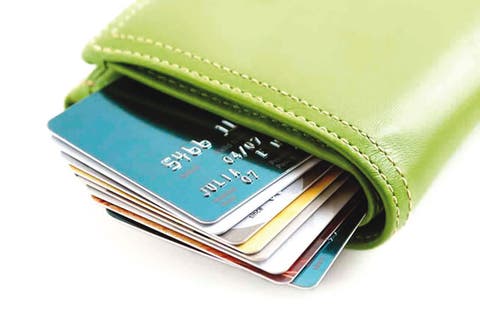
Learn how to stay safe when using the Automated Teller Machine and your credit, debit and ATM cards. These tips will be useful to you, according to www.handsonbanking.org.
At the ATM
Think about your personal safety when using an ATM. This is because most ATMs give out cash and many accept deposits. It makes sense to be alert and aware of your surroundings no matter where or when you use an ATM. When you are by yourself, avoid using an ATM in out-of-the-way or deserted areas. Use ATMs located inside banks or supermarkets where other people are around. Use ATMs in well-lit, public areas.
Be sure to look at the ATM. If it looks like someone has tampered with the equipment, don’t use it. (This could mean that a criminal has attached a “skimmer” to the ATM to steal your financial information.) If a suspicious person offers to help you use the ATM, refuse and leave.
Put your money and ATM card away before you leave the ATM. Always avoid showing your cash. Always verify that the amount you withdrew or deposited matches the amount printed on your receipt. Shred or destroy your ATM receipts before you throw them away.
Report loss or theft!
Report lost or stolen credit cards immediately to the company that issued you the card. If your ATM card or debit card is lost or stolen, contact your bank immediately.
To help you respond quickly in case your cards or ID are lost or stolen, make a chart like this one. Be sure to store the list in a safe place. Never carry it with you.
Sign your card
Sign your card on the signature panel as soon as you receive it.
Treat cards like cash
Protect your cards as if they were cash — never let them out of your possession or control. Don’t leave your credit cards in your car’s glove compartment. A high percentage of credit card thefts are from car glove compartments. Don’t lend your cards — credit, debit, or ATM — to anyone. You are responsible for their use. Don’t let your credit cards be used by others, even family and friends. Always be sure to take your ATM card out of the ATM.
PIN safety
Never write down your personal identification number (PIN), especially on the back of your card. Memorize it. Don’t write down your account number and PIN and carry it with you. If your wallet or purse is stolen, someone else could have access to your money. Never tell anyone your PIN. No one from a financial institution, the police, or a merchant should ask for your PIN. You are the only person who needs to know it. When selecting a PIN, avoid picking a number that is easy for others to guess — for example, your name, telephone number, date of birth, or any simple combination of these. When typing in your PIN at the ATM or when making a point-of-sale purchase, cover the number pad so no one near you can see your PIN. Change your current PIN from time to time to make it more difficult for fraudsters to guess.
When shopping
When shopping, be sure that you get your card back after every purchase. Always make sure that sales vouchers are for the correct purchase amount before you sign them. Keep copies of your sales vouchers and ATM, debit or credit card receipts in a secure place. Don’t volunteer any personal information when you use your credit card, other than by displaying personal identification as requested by a merchant. Don’t put your driver’s license number on your checks. Review your statements regularly to ensure there are no suspicious charges. Contact your bank immediately if you see a charge you don’t recognise.
Avoid magnets
Keep your cards away from things with magnets, which can erase the information stored on the card’s magnetic strip.
Review these tips for keeping your mail safe.
Smart ideas for protecting your mail
Notify the post office immediately if you change your address.
Get a mailbox that you must unlock with a key to remove your mail.
Don’t leave your mail for long periods of time in visible, unguarded areas (e.g., apartment lobbies).
Reduce your risk of mail fraud by signing up for electronic statements or bills.
Review your statements both in paper and online to detect suspicious activity and fraud.
If you’re out of town, put a hold on your mail delivery or have a person you trust pick it up.
Don’t put outgoing mail in your residential mailbox. It could be stolen.
Put outgoing mail in a secure USPS mail box or hand it directly to a uniformed USPS mail carrier.
Use an electronic bill pay service to help keep your information safe.
If a company’s regular bills or statements stop reaching you, contact that company immediately.

0 Comments